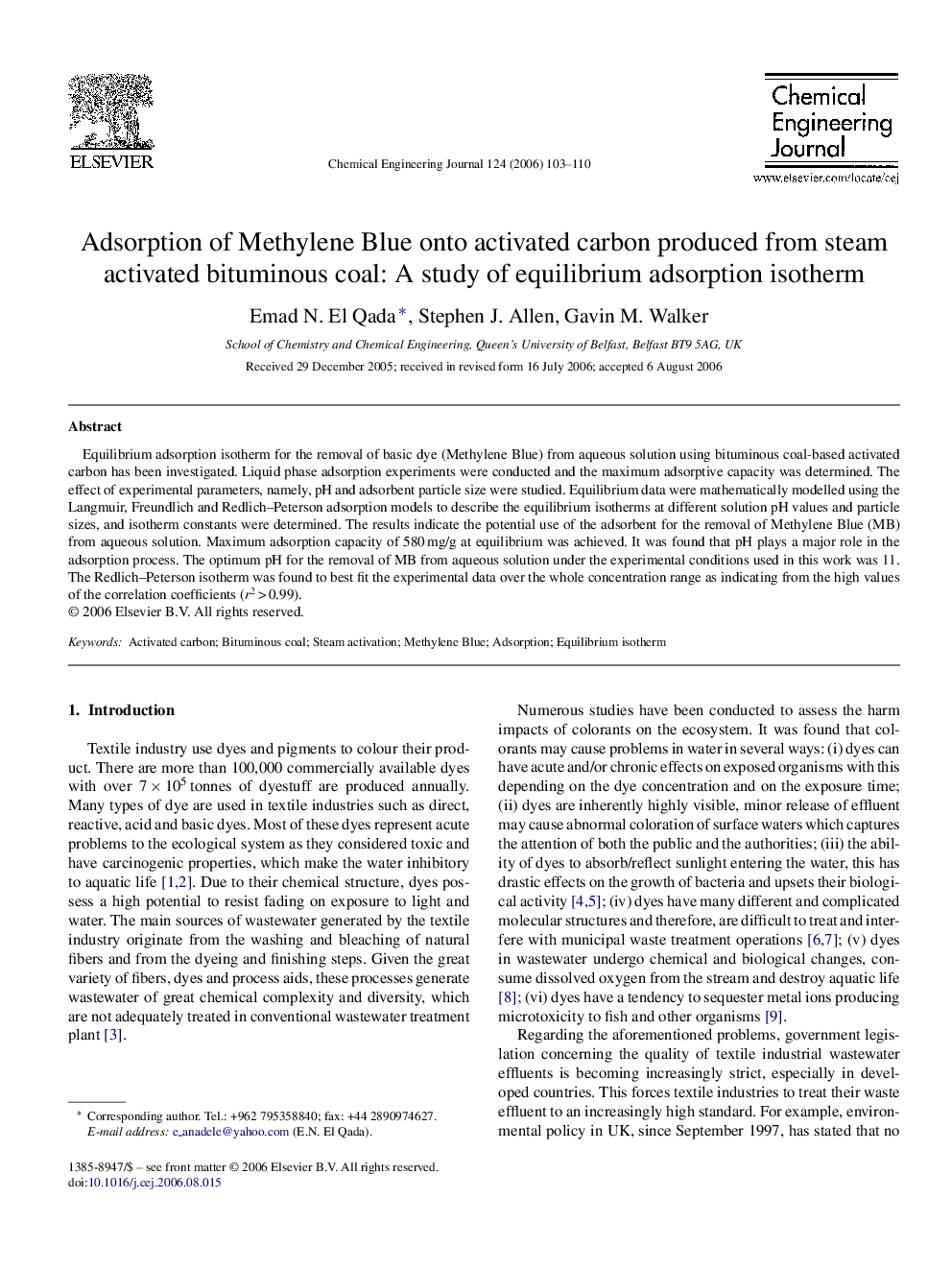| Article ID | Journal | Published Year | Pages | File Type |
|---|---|---|---|---|
| 154168 | Chemical Engineering Journal | 2006 | 8 Pages |
Equilibrium adsorption isotherm for the removal of basic dye (Methylene Blue) from aqueous solution using bituminous coal-based activated carbon has been investigated. Liquid phase adsorption experiments were conducted and the maximum adsorptive capacity was determined. The effect of experimental parameters, namely, pH and adsorbent particle size were studied. Equilibrium data were mathematically modelled using the Langmuir, Freundlich and Redlich–Peterson adsorption models to describe the equilibrium isotherms at different solution pH values and particle sizes, and isotherm constants were determined. The results indicate the potential use of the adsorbent for the removal of Methylene Blue (MB) from aqueous solution. Maximum adsorption capacity of 580 mg/g at equilibrium was achieved. It was found that pH plays a major role in the adsorption process. The optimum pH for the removal of MB from aqueous solution under the experimental conditions used in this work was 11. The Redlich–Peterson isotherm was found to best fit the experimental data over the whole concentration range as indicating from the high values of the correlation coefficients (r2 > 0.99).
